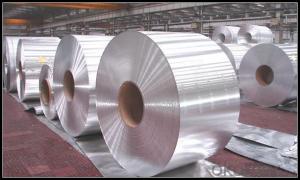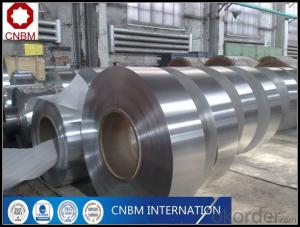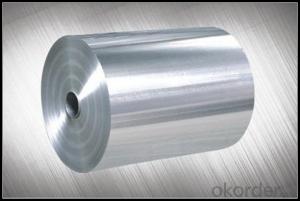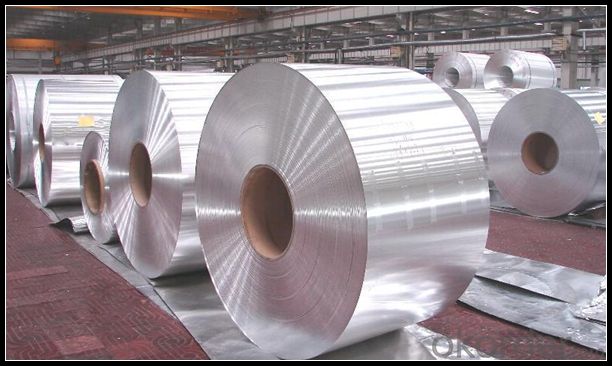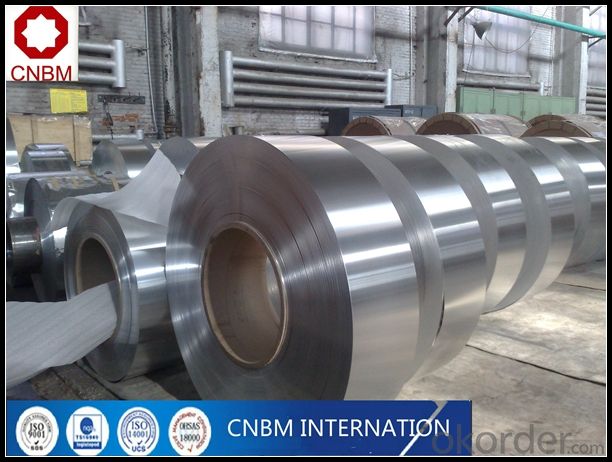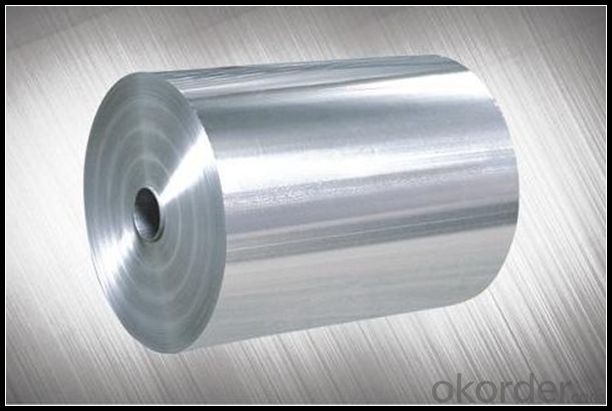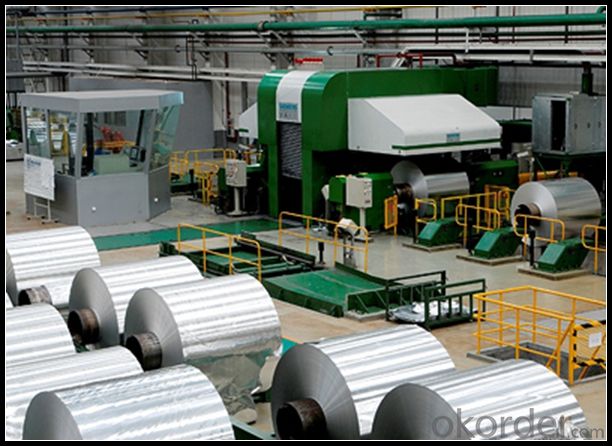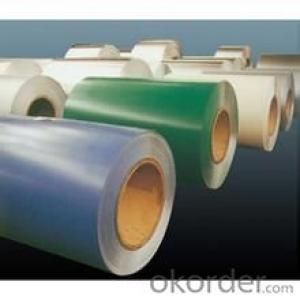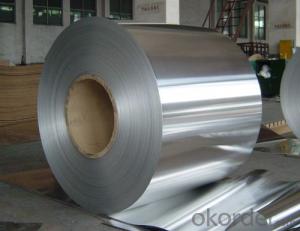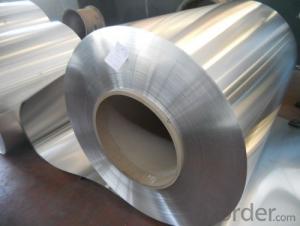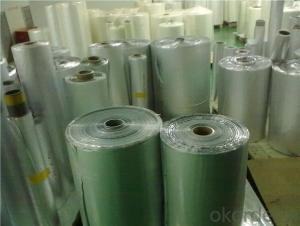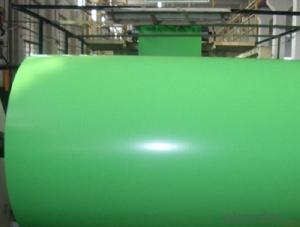Aluminum Coil/ Aluminum Sheet in High Quality Supply from China
- Loading Port:
- Tianjin
- Payment Terms:
- TT OR LC
- Min Order Qty:
- 6 m.t.
- Supply Capability:
- 3000 m.t./month
OKorder Service Pledge
OKorder Financial Service
You Might Also Like
Item specifice
1. Specification of Aluminum Coil
1) Alloy | AA1050, AA1060, AA1070, AA1100, AA3003, AA3004, AA3105, AA5005, AA5052, AA8011, AA8079 etc |
2) Temper | O/H12/H14/H1/H18/H32/H34/H36/H38/T6/T651/T3/T351 etc |
3) Thickness | 0.1mm to 6mm |
4) Width | 20mm to 3300mm |
5) Coil weight | 100kgs to 6 tons depends on actual requirement |
6) Core material | Aluminum |
7) Coil Inner diameter | 76mm, 152mm, or as required |
2. Application of Aluminum Coil
(1).Interior: wall cladding, ceilings, bathrooms, kitchens and balconies, shutters, doors...
(2).Exterior: wall cladding, facades, roofing, canopies, tunnels,column covers , renovations...
(3).Advertisement: display platforms, signboards, fascia, shop fronts.
3. Feature of Aluminum Coil
*Such coil is specially designed to replace aluminum ingot, due to the high export tax of aluminum ingot, the coil has better price than ingot.
*This type of coil can fit customer's remelting furnace just like ingot, no need to make any change to the production line that was previously used for ingot. The standard coil size and weight is very suitable for the feed gate of furnace.
*This type of coil causes less material wastage than ingot when remelted.
*Our coil is made directly from ore, no need to go though the ingot making process, quality is much better than other suppliers who use ingot scrap to make coil.
Be free from Oil Stain, Dent, Inclusion, Scratches, Stain, Oxide Dicoloration, Breaks, Corrosion, Roll Marks, Dirt Streaks and other defect which will interfere with use
4. Certificate:
SGS and ROHS(if client request, paid by client), MTC(plant provided), Certificate of Origin(FORM A, FORM E, CO), Bureau Veritas and SGS (if client request, paid by client), CIQS certificate
5. Image of Aluminum Coil
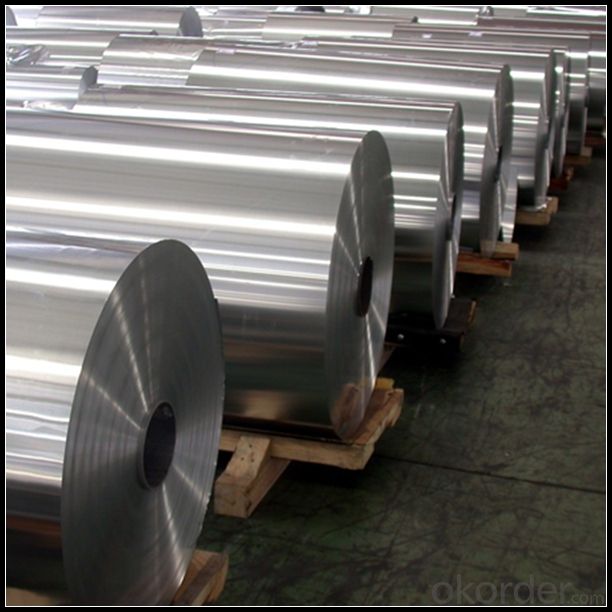
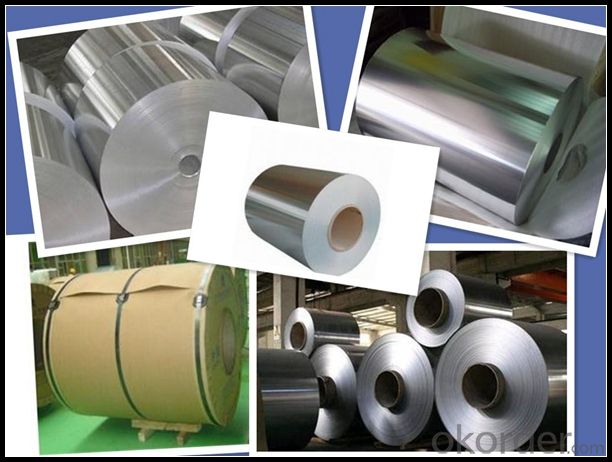
6. About Our Company
CNBM International Corp., established in 2004, is the business entity for trade and logistic of CNBM Group.
CNBM International is highly recognized by its business partners and clients all over the world and has established good business relationship with the customers in over 160 countries and regions all over the world.
7. FAQ
1) What is the delivery time?
Dpends on actual order, around 30 to 35 days
2)What is the QC system:
We have QC staff of 20 persons and advanced equipment, each production is with MTC traced from Aluminum ingot lot.
3) What market do you mainly sell to?
Australia, America, Asia, Middle East, Western Europe, Africa etc
4)What are your payment terms?
We accept L/C, D/A, D/P, T/T, West Union,etc.
- Q:Are there any health risks associated with aluminum coils?
- Yes, there are some health risks associated with aluminum coils. When aluminum coils are heated, they can release small amounts of aluminum particles into the air, which may be inhaled. Prolonged exposure to high levels of aluminum particles may potentially lead to respiratory issues and lung damage. Additionally, there is a concern that aluminum particles could contaminate food if the coil is used in cooking or food storage. However, the health risks are generally considered to be low if proper ventilation is maintained, and aluminum coils are used within recommended guidelines.
- Q:Can aluminum coils be used in coil coating processes?
- Yes, aluminum coils can be used in coil coating processes. Coil coating is a continuous and automated process that involves applying a protective or decorative coating to a coil of metal, typically steel or aluminum. Aluminum coils are commonly used in this process due to their excellent corrosion resistance, lightweight nature, and ease of forming. The aluminum coils undergo various pre-treatment processes like cleaning, chemical treatment, and primer application before the actual coating is applied. These coils are then coated with a wide range of materials, including paints, lacquers, and polymers, to enhance their appearance, durability, and performance. The coil coating process allows for efficient and consistent coating application, making it an ideal choice for various industries such as construction, transportation, and appliances.
- Q:metals an aluminum can is made of, cast aluminum, 6160 aluminum, sheet aluminum
- the aluminum is alloyed with various metals to change the characteristics of the aluminum the link below shows a table showing the various chemical/metals added to aluminum to make different alloys
- Q:What are some common defects in aluminum coils?
- Some common defects in aluminum coils include surface scratches, dents, uneven thickness, edge wave, oil stains, and pitting.
- Q:What is the maximum temperature resistance of aluminum coils?
- The maximum temperature resistance of aluminum coils depends on various factors, such as the alloy composition, purity, and the specific application. However, in general, aluminum has a relatively low melting point of around 660 degrees Celsius (1220 degrees Fahrenheit). Consequently, the maximum temperature resistance of aluminum coils typically ranges between 200 and 400 degrees Celsius (392 to 752 degrees Fahrenheit). Beyond these temperatures, aluminum may start to undergo structural changes, such as softening or deformation, which can impact its performance and integrity. Therefore, it is important to consider the specific requirements and limitations of the application when determining the maximum temperature resistance of aluminum coils.
- Q:What are the different coil leveling options available for aluminum coils?
- There are several coil leveling options available for aluminum coils, including tension leveling, temper leveling, and stretcher leveling. Tension leveling involves stretching the coil to remove any shape defects and improve flatness. Temper leveling involves subjecting the coil to controlled heating and cooling cycles to relieve internal stresses and improve flatness. Stretcher leveling involves stretching the coil beyond its yield point to permanently remove shape defects and improve flatness. These different options allow for customized leveling techniques based on the specific requirements of the aluminum coil.
- Q:What are the common handling and storage practices for aluminum coils?
- To maintain the integrity and prevent damage or degradation of aluminum coils, several key steps should be taken: 1. Minimize physical damage: Handle and store aluminum coils carefully to reduce the risk of physical harm. This involves using appropriate lifting equipment to avoid dropping or mishandling the coils. Additionally, store them in a secure location away from potential hazards like heavy machinery or sharp objects. 2. Ensure proper stacking and support: When stacking aluminum coils, evenly distribute the weight and avoid overloading. Uneven support or excessive weight can cause deformation or collapse. It is advisable to use suitable stacking equipment and supports, such as pallets or racks, to maintain the coils' integrity. 3. Protect against moisture and corrosion: Aluminum is prone to corrosion, especially in the presence of moisture. Thus, it is crucial to store the coils in a dry environment to prevent rust or other forms of corrosion. Shield the coils from rain, snow, or excessive humidity by storing them in a covered area or inside a warehouse. Additionally, wrapping the coils in moisture-resistant packaging, like plastic, offers an extra layer of defense. 4. Control temperature: Extreme temperatures can affect the quality and performance of aluminum coils. To prevent adverse effects, store them in a temperature-controlled environment. High temperatures can cause expansion or distortion, while extreme cold can make them brittle and prone to cracking. Maintaining a stable temperature within the recommended range ensures the longevity and usability of the coils. 5. Follow guidelines: It is vital to adhere to any specific handling and storage guidelines provided by the manufacturer or supplier. These guidelines may include recommendations on stacking height, weight limits, and necessary precautions to prevent damage or deformation. By following these guidelines, the quality and usability of the coils can be maintained. By implementing these common practices, the protection, integrity, and optimal performance of aluminum coils can be ensured throughout their lifespan.
- Q:How do aluminum coils compare to nickel coils in terms of conductivity?
- Compared to nickel coils, aluminum coils typically exhibit lower electrical conductivity. This is mainly attributable to the fact that aluminum has a higher resistivity than nickel. Concerning conductivity, nickel emerges as a superior electrical conductor owing to its lower resistivity. Consequently, nickel coils are frequently favored in situations where high conductivity is vital, like in electrical circuits or heating elements. Nonetheless, it is crucial to acknowledge that aluminum coils still possess reasonable conductivity and may prove suitable for specific applications where cost-effectiveness or lightweight properties outweigh other considerations.
- Q:How do aluminum coils contribute to the reduction of carbon footprint?
- Aluminum coils contribute to the reduction of carbon footprint in several ways. Firstly, aluminum is a lightweight material, which means that it requires less energy to transport compared to heavier materials like steel. This reduces fuel consumption and emissions associated with transportation, thereby reducing the overall carbon footprint. Additionally, aluminum is highly recyclable and can be recycled indefinitely without losing its quality. The process of recycling aluminum requires significantly less energy (up to 95% less) compared to producing new aluminum from raw materials. By using aluminum coils, which can be easily recycled, we can reduce the demand for new aluminum production, which in turn reduces the carbon emissions associated with the extraction and refining of raw materials. Moreover, aluminum coils have excellent thermal conductivity properties. This makes them highly efficient for use in heating and cooling systems, such as air conditioning units and heat exchangers. By using aluminum coils in these applications, energy consumption is reduced as they facilitate the transfer of heat more efficiently, resulting in lower energy consumption and reduced carbon emissions. Lastly, aluminum coils have a longer lifespan compared to other materials, such as copper or steel. This means that they require less frequent replacement, resulting in reduced waste generation and lower carbon emissions associated with the manufacturing and disposal of new coils. Overall, the utilization of aluminum coils contributes to the reduction of carbon footprint through its lightweight nature, recyclability, thermal conductivity properties, and longer lifespan. By choosing aluminum coils over other materials, we can make significant strides in reducing carbon emissions and promoting a more sustainable future.
- Q:What are the standard dimensions for aluminum coils?
- The dimensions of aluminum coils can vary depending on their intended use and the industry they are being used in. However, there are generally accepted standard dimensions for aluminum coils. In terms of width, aluminum coils can range from 4 inches (10 cm) to 60 inches (152 cm). The exact width will depend on factors such as the purpose of the coils, the manufacturing process, and the customer's specifications. When it comes to thickness, aluminum coils are available in various gauges or millimeters. Common thicknesses can range from 0.018 inches (0.46 mm) to 0.25 inches (6.35 mm) or even thicker in certain applications. The length of aluminum coils can also vary based on customer requirements or industry standards. Coils can be supplied in standard lengths, such as 1000 feet (304.8 meters) or 2000 feet (609.6 meters), or they can be custom-cut to a specific length. It is important to note that these dimensions are not fixed and can be customized to suit the needs of a particular project. Different industries, like construction, automotive, and aerospace, may have their own specific size requirements for aluminum coils. Therefore, it is recommended to consult with an aluminum coil manufacturer or supplier to determine the most appropriate dimensions for a specific application or project.
1. Manufacturer Overview |
|
|---|---|
| Location | |
| Year Established | |
| Annual Output Value | |
| Main Markets | |
| Company Certifications | |
2. Manufacturer Certificates |
|
|---|---|
| a) Certification Name | |
| Range | |
| Reference | |
| Validity Period | |
3. Manufacturer Capability |
|
|---|---|
| a)Trade Capacity | |
| Nearest Port | |
| Export Percentage | |
| No.of Employees in Trade Department | |
| Language Spoken: | |
| b)Factory Information | |
| Factory Size: | |
| No. of Production Lines | |
| Contract Manufacturing | |
| Product Price Range | |
Send your message to us
Aluminum Coil/ Aluminum Sheet in High Quality Supply from China
- Loading Port:
- Tianjin
- Payment Terms:
- TT OR LC
- Min Order Qty:
- 6 m.t.
- Supply Capability:
- 3000 m.t./month
OKorder Service Pledge
OKorder Financial Service
Similar products
New products
Hot products
Hot Searches
Related keywords
